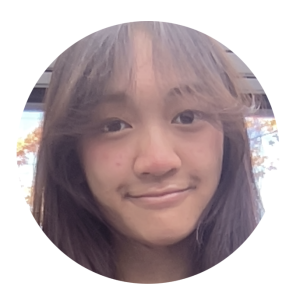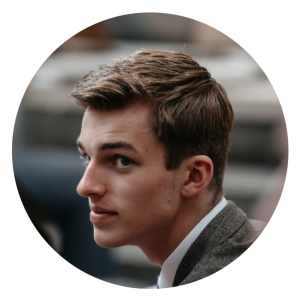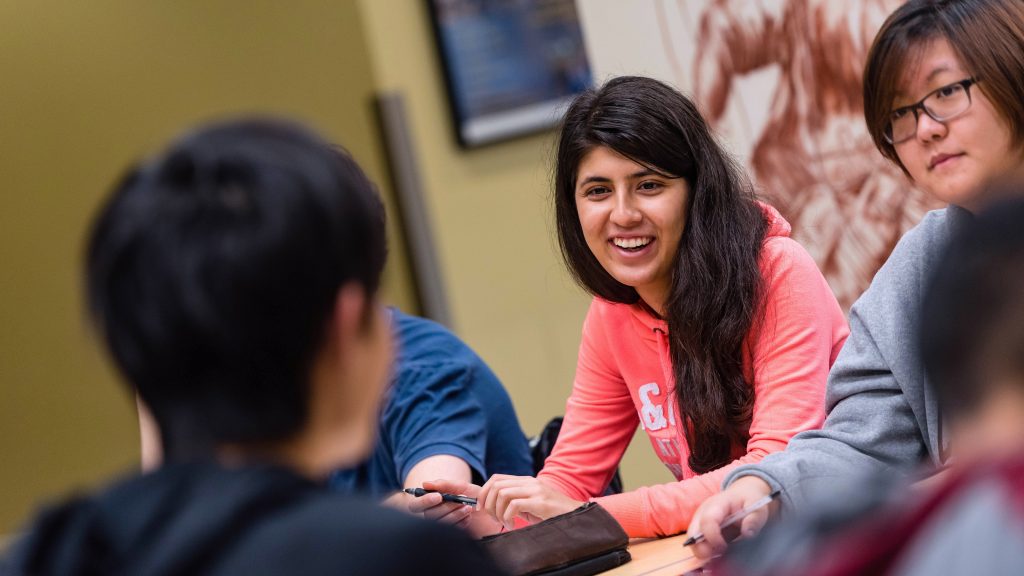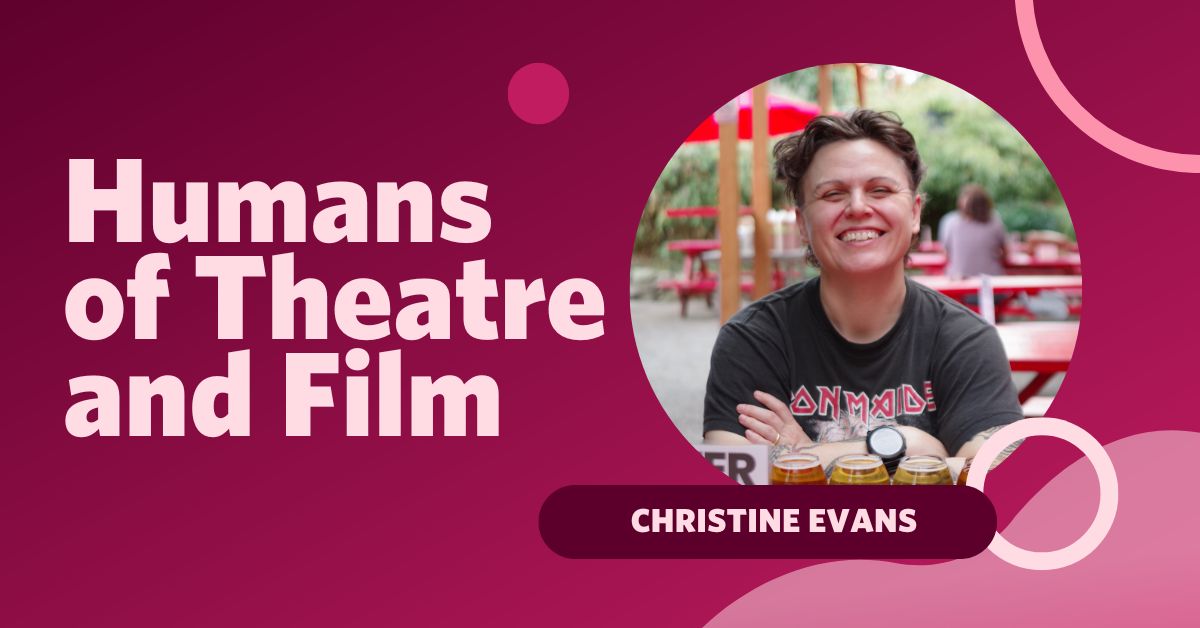

The Straker Prize is an award offered to two Arts One students every year in honour of Dr. Stephen Straker (1942-2004), a former member of the UBC Department of History and a strong supporter of the Arts One program. The students selected for the Straker Prize demonstrate high academic standing, and also exhibit promise and distinction in their contributions to their respective seminars, the Arts One program as a whole, and the wider community.
This year’s Straker Prize winners are Hannah Madar and Rory Maddinson. Read more about their experiences in the Arts One program, as well as what they got out of being Arts One students below.


Hannah Madar is preparing to enter her second year at the University Of British Columbia. Having recently finished her first year in Arts One, she plans on studying Honours English Language and Literature along with Computer Science. In her spare time, Hannah enjoys rhythmic gymnastics, baking, and hanging out with friends.
Describe your first-year experience in 10 words or less.
Late-night study hangouts with the taste of ice cream 🙂
Looking back, what did you enjoy the most about the Arts One program? What did you find the most challenging?
Adapting to the expected performance results at a university level has been tough for all of my classes (I also took courses in biology and computer science), and the Arts One program has been no exception. Specifically, realizing that my writing skills needed to adjust—and improving them accordingly—has been equally difficult as it has been a rewarding experience.
As for what I found most enjoyable about the program, the discussions we would have as a cohort is a strong contender: being able to discuss and learn off of others’ ideas in an encouraging environment challenged me, which is a priceless type of learning on its own. And of course, getting close with the classmates within my seminars has been a lot of fun: Arts One tutorials and mutual stressing over essays is the type of unique experience that creates strong bonds.
What are your top 3 favourite texts from Arts One and why?
Discourse on Inequality by Jean-Jacques Rousseau was one of the most intriguing to analyze. Through being in the program, I’ve learned that I enjoy being challenged with concepts and perspectives that I hadn’t previously considered, especially if they involved concepts of psychology, human history, and progress, both future and past. I also found myself intrigued and fascinated by the psychological interpretations present in Franz Fanon’s Black Skin, White Masks, and ended up using the deeply emotional and critical novel for my final Capstone paper. Finally, while I was already familiar with Frankenstein by Mary Shelley, her work only continues to amaze me. Writing what is considered by many to be the first science-fiction novel at such a young age is nothing short of inspiring.
If you had the opportunity to do so, what would you say to your first-year self?
You’re going to meet so many passionate and inspiring individuals from all kinds of backgrounds, and improve the invaluable skill of critical thinking that can truly be applied to any field. Stock up on coffee and try not to stress too much this time!
What are your plans for second year and/or beyond? Did being in the program have any influence on your path?
One of the things that made Arts One so influential and valuable to my academic experience was receiving continuous, personal feedback about my work from my professor. (People outside the program consistently tell me that this type of connection is especially rare at the first-year level.) For the future, I plan on combining my enjoyment of language and critical thinking with the sciences, and because of the opportunity to improve from such specific constructive criticism through tutorials, Arts One has been invaluable to me and my confidence in approaching that path.


Hailing from a small village in the UK, Rory is an avid reader who also enjoys hiking, Doctor Who, and consuming an exorbitant amount of green tea on a regular basis. He was part of Stream B in Gavin Paul’s seminar.
Describe your first-year experience in 10 words or less.
Chaotically beautiful. Or beautifully chaotic? Perhaps a bit of both!
Looking back, what did you enjoy the most about the Arts One program? What did you find the most challenging?
The best thing about Arts One has to be the people. They do a cracking job with the reading list — I never thought I’d do Hindu Scripture and Marx in the same course — but the people involved is where Arts One truly shines. I made some very close friends and I was lucky enough to have Gavin Paul as my seminar instructor, who I can’t recommend enough.
In terms of challenges, there is definitely a lot of reading to be done! It may seem uncomfortable at first, but I’d argue the feeling of pride at the end is more than worth it. I can’t think of many other courses where you will have studied 24 different texts by the time you’ve finished.
If you could interview an author whose work you read in Arts One, who would that author be and why?
Hmm I dread to think what kind of hot take Freud would have in store for me if I met him. Probably Frantz Fanon? I’m interested in decolonisation, and so I’d be fascinated to learn more about his work on double consciousness and internalisation. That and for some reason, I get the feeling he’d have a wicked Jazz playlist.
What impressions did you have about Arts One going into the program? Did those impressions change after you finished the program?
To be completely honest, I knew very little about the program going into it. I saw the booklist, thought it looked fun, and so went for it; I’m very glad I did! The diversity of authors and ideas that first caught my eye were present throughout the course, and I was also pleased that the community aspect was very much there. In particular, I shall dearly miss all the lunches I had with people after seminar (shoutout to the Vanier Lunch Club!).
What are your plans for second year and/or beyond? Did being in the program have any influence on your path?
I’m hoping to major in History, and so the extensive reading & essay writing practice definitely helps! Beyond the skills I’ve learnt though, the international scope of the Arts One program has further strengthened my interest in working overseas as a diplomat after university. I feel so privileged to have been able to study such a wide range of texts with a group of diverse and passionate people, and so I can’t wait to see who else I end up meeting in the future — and what else I end up reading!


